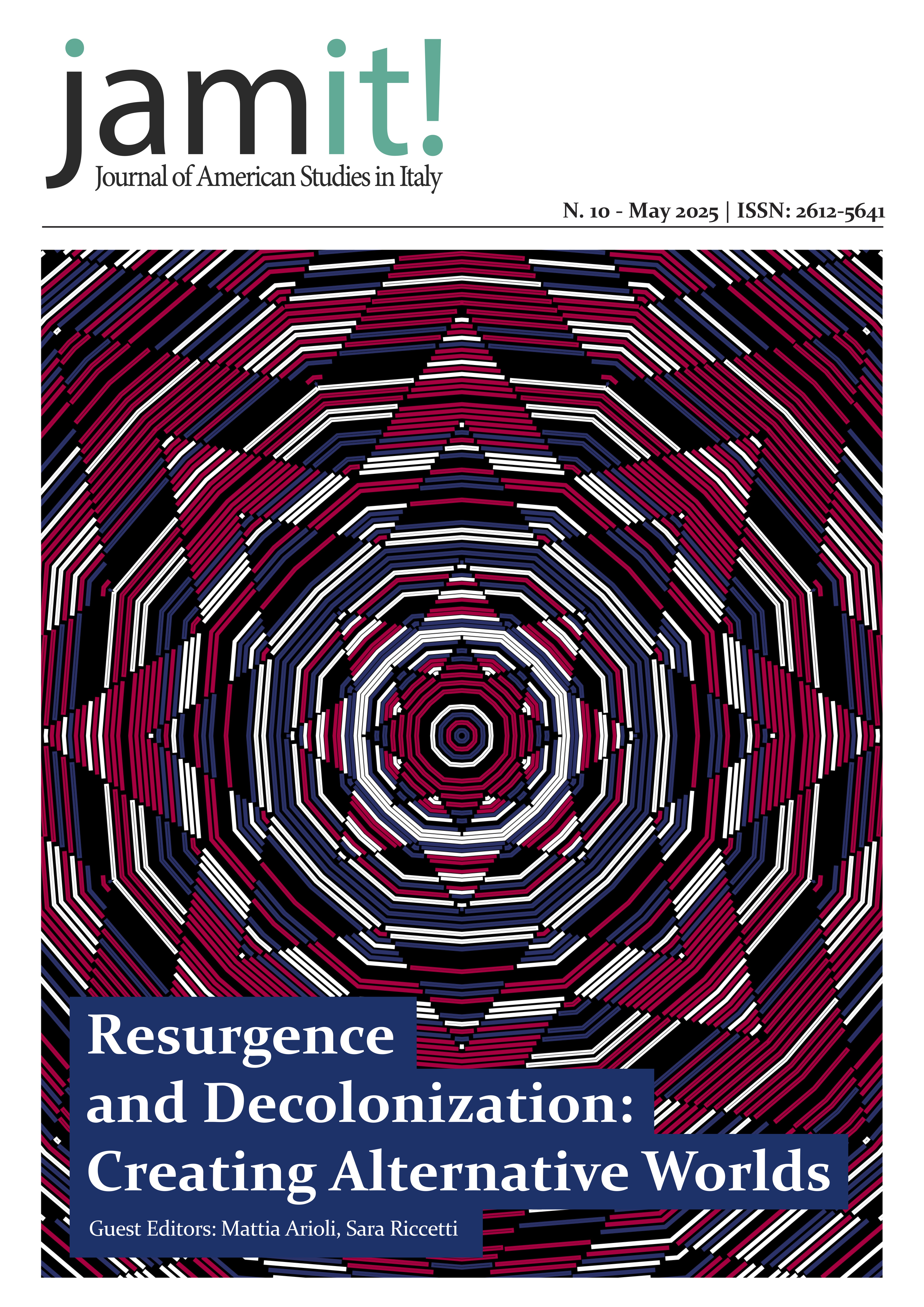Epistemologies of Care
An Ecopoetic Conversation between Craig Santos Perez, Jamaica H. Osorio and Sia Figiel
DOI:
https://doi.org/10.13135/2612-5641/10190Keywords:
Indigenous poetry; decolonial love; ethics of care; ecopoetic; activism.Abstract
Bearing in mind Epeli Hauʻofa’s concept of “a sea of islands,” this article proposes an ecocritical analysis of three poems written by three Indigenous authors, Craig Santos Perez (CHamorro-Guam) Jamaica H. Osorio (Hawai’i), and Sia Figiel (Samoa) published between 2016 and 2022, respectively. Together, the poems create a relevant example of Indigenous ecocriticism that is overtly interacting with global flows of power and are simultaneously entangled with the struggles of many other Pacific islanders when it comes to topics such as ecological degradation, land occupation, mass tourism, and militarization/nuclearization of Pacific island-nations. The poems to be analyzed are “Green Washing and White Dollar Policy” (Jamaica H. Osorio), “Praise Song for Oceania” (Craig Santos Perez) and “In-Land-Ness” (Sia Figiel). The epistemologies of care that I am referring to are based on Indigenous ancestral knowledge and practices that are vessels of environmental ethics and honor Earth as an ancestor, as well as demonstrations of multiple forms of belonging in which human and non-human elements are symbiotically connected. Therefore, this article problematizes and critically questions the impact of global policies upon Indigenous communities as well as it presents examples of resistance that are generating transcultural move-ments in which contemporary Indigenous writers question the validity of globalized policies that had proven to be disruptive and harmful for their societies. Each of these authors presents chal-lenging questions that trace environmental degradation back to the colonial encounter while demonstrating that their Indigenous societies developed complex and sustainable relationships with the environment, those that were disrupted by colonialism and subsequently imperialism and globalization. Moreover, the voices of these writers resonate through waves of anger against the harm that has been inflicted upon ecosystems, and thus their poems are ways of denouncing injustices, and, to a certain extent, ensuring cultural survival when assuming a strategic significance as counternarratives to the Americanization of the islands. Consequently, my analysis of the poems aims at demonstrating that coalitions formed among Pacific Islanders vividly respond to the imperial West and fiercely resist land occupation and environmental degradation. Embedded in my analysis is also an assumed critique of colonial/Western views of nature as a separate and empty object that exists to be exploited and to generate profit. In sum, the tapestry woven by the poems selected here highlights the importance of activism, education, care, and love as actions that simultaneously denounce multiple forms of “slow violence” against Indigenous cultures and generate decolonial discourses.
Downloads
Published
Issue
Section
License
Copyright (c) 2025 Ana Cristina Gomes da Rocha

This work is licensed under a Creative Commons Attribution-NonCommercial-NoDerivatives 4.0 International License.
Authors who publish with this journal agree to the following terms:
- Authors retain the copyright and full publishing rights for their submissions to the journal.
- Authors grant the journal right of first publication with the work simultaneously licensed under a Creative Commons Attribution-NonCommercial-NoDerivatives 4.0 International License that allows others to share unedited work for non-commercial purposes with an acknowledgement of the work's authorship and initial publication in this journal.
- Authors are able to enter into separate, additional contractual arrangements for the non-exclusive distribution of the journal's published version of the work (e.g., post it to an institutional repository or publish it in a book), with an acknowledgement of its initial publication in this journal.
- Authors are permitted and encouraged to post their work online (e.g., in institutional repositories or on their website) prior to and during the submission process, as it can lead to productive exchanges, as well as earlier and greater citation of published work (See The Effect of Open Access).




